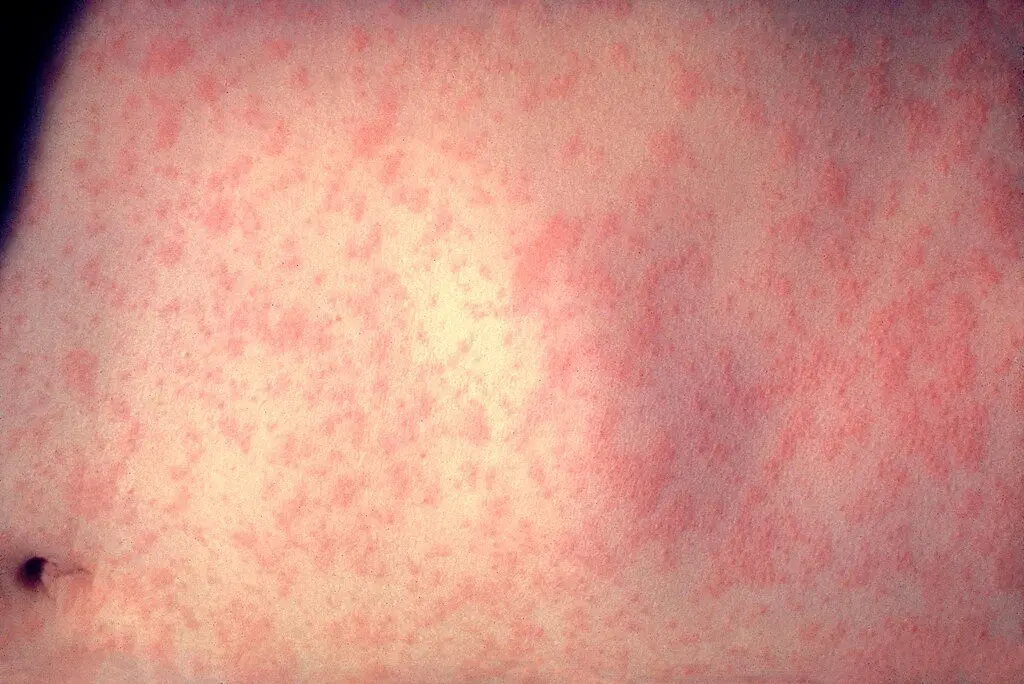KOOTENAI COUNTY, WA – North Idaho health officials on Tuesday identified the state’s first confirmed measles infection in a resident since 2023. The case was reported amid the nation’s worst outbreak of the disease in decades.
The Panhandle Health District reported the case was an unvaccinated child in Kootenai County; the confirmation of the infection marked the first case in the state’s Panhandle area since 1991, according to a press release from the health district.
Health officials last week reported that the measles virus was detected in wastewater in Coeur d’Alene, indicating someone in the area was infected, the Idaho Capital Sun reported.
Measles is a highly contagious virus and spreads easily through the air when an infected person breathes, coughs or sneezes, the Panhandle Health District press release said. The virus can stay in the air two hours after an infected person has left. Symptoms typically appear seven to 14 days after exposure and include high fever, cough, runny nose, red eyes, and a distinctive rash.
Traveler visiting eastern Idaho had measles. But officials don’t think the public was exposed.
While many recover without problems, measles can lead to serious complications, especially in very young children and people with weakened immune systems.
Cases of the disease nationwide reported in 2025 have already surpassed the total number of cases in 2024, the release said. Measles has been reported in 41 jurisdictions, including in Washington, Montana, Oregon and Wyoming. Among those cases, 13% have been hospitalized, most of them children, the release said.
State health officials also previously reported that a child from another country visiting eastern Idaho had measles, the Sun reported.
Health officials encourage people to verify their family’s vaccination records with their primary care provider or through the Docket App. A person is considered immune if they were born before Jan. 1, 1957, have a documented history of laboratory-confirmed measles or have documentation that they received both doses of the MMR vaccine.
“The measles vaccine is highly effective, and for most people, two childhood doses of vaccine is all they will ever need to protect themselves against measles for their lifetime,” the release said. The MMR vaccine is typically given between 12 and 15 months of age followed by another dose at 4 to 6 years of age. It can be given as early as 6 months of age for those who are traveling to areas with known measles infections or in the event of a local outbreak of measles, the release said.
What to do if you’re exposed to measles
The virus’s serious complications can include pneumonia, encephalitis (an inflammation of the brain) and, in rare cases, death. A high fever, cough, runny nose, rash and red, watery eyes are common measles symptoms, the Centers for Disease Control and Prevention, or CDC, says.
There is no antiviral treatment for measles, according to the CDC.
People with measles symptoms should not enter health care settings without calling ahead, and should contact their health care providers. People exposed to measles should monitor for symptoms for 21 days after exposure.
Idaho Capital Sun is part of States Newsroom, a nonprofit news network supported by grants and a coalition of donors as a 501c(3) public charity. Idaho Capital Sun maintains editorial independence. Contact Editor Christina Lords for questions: info@idahocapitalsun.com.





